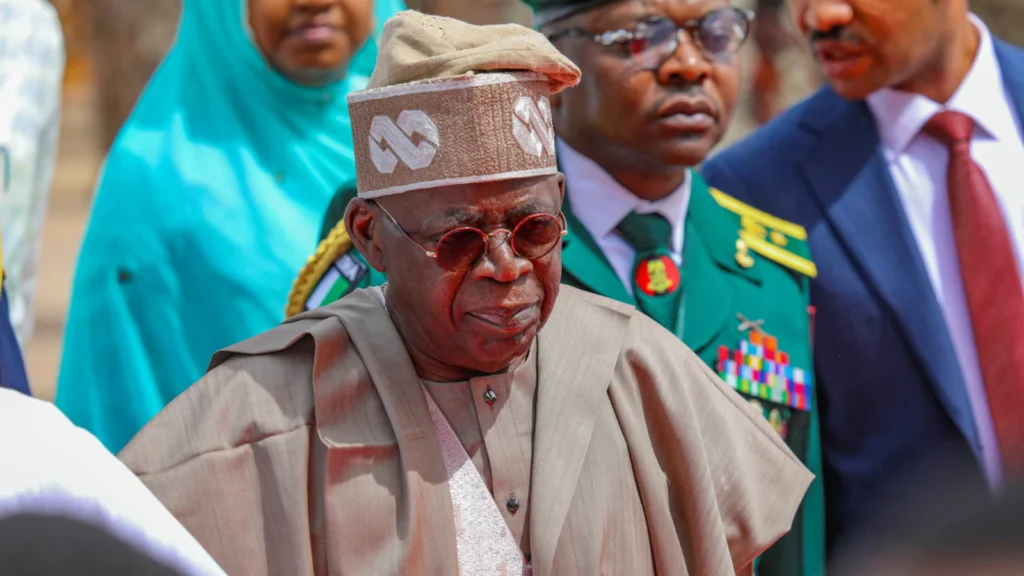Nigeria’s president has called for an end to the widespread protests against economic challenges, describing the rallies as violent and attributing them to “a few with a political agenda.” Despite this appeal, the protests continued on Sunday for a fourth day in several areas, including Lagos.
The protests, which started on Thursday, have been marked by incidents of looting, vandalism, and allegations of excessive force by security forces. Amnesty International has reported that nine protesters were killed in clashes with police and four others died from a bomb explosion. Nigerian authorities have disputed these claims.
In his first public response to the protests, President Bola Tinubu said, “I have heard you loud and clear. I understand the pain and frustration driving these demonstrations, and I assure you that our government is committed to addressing your concerns.”
He also warned that “a few with a clear political agenda to divide the nation” would be met with resistance from security forces.
Critics argued that Tinubu’s comments failed to address the underlying issues causing the protests, viewing it as a “missed opportunity” that lacked a clear plan or specific measures for tackling the problems.
The protests reflect widespread frustration with the severe cost-of-living crisis and allegations of poor governance and corruption in Nigeria, a major oil producer with stark disparities between the high earnings of public officials and widespread poverty and hunger.
Tinubu’s aides have suggested that the protests are politically motivated. His election victory last year, achieved with just 37% of the vote, was the narrowest margin ever for a Nigerian president and faced opposition challenges. Additionally, the election saw the lowest voter turnout since Nigeria’s return to democracy in 1999.
The protests have also been influenced by recent demonstrations in Kenya, where young people protested against a proposed tax increase.
The Nigerian leader emphasized that his government will actively address the looting that has occurred in recent days.
He called on protesters and organizers to cease further demonstrations and open a space for dialogue.
The military has also warned of possible intervention to address the violence.
Tinubu defended the ambitious reforms designed to save government funds and attract foreign investment, despite their immediate effects worsening the situation for many people.
Analysts have criticized the implementation of these reforms, such as ending long-standing gas subsidies and devaluing the currency, for driving up prices across various sectors.
Tinubu urged, “The economy is on the mend; please don’t stifle its progress.”
In a region where popular unrest has often led to military coups against elected governments, the Nigerian leader cautioned that the protests could jeopardize the country’s democracy.
He declared, “Forward always, never backward!”


